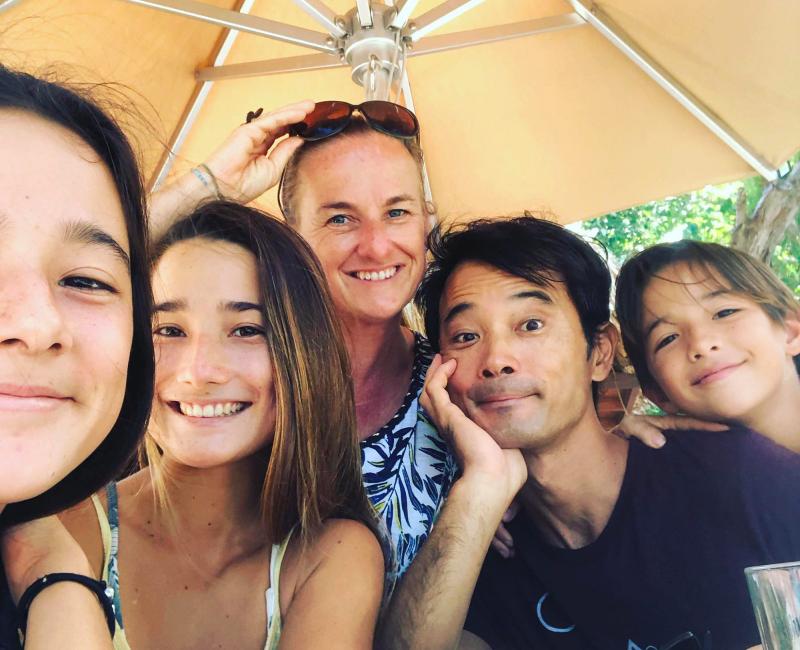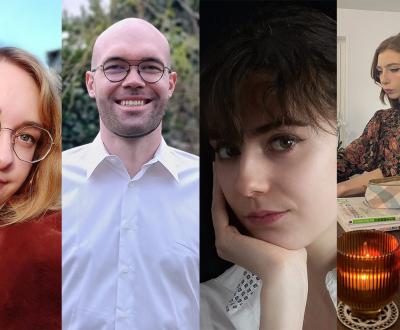The Unfair Situation of Students, Workers and Families Living Under the Japan Foreign Entry Ban
Analysis and Stories of Early 2022
It has been almost 2 years now that Japan closed its borders to all incoming foreign visitors. Permanent residents who were unlucky enough to be abroad at the time had to wait for five months to be allowed back in the country. In a world still heavily affected by several Covid 🦠 variants, the re-opening to millions of tourists per year is quite naturally not on the agenda yet, however the reopening to some travelers' categories has long been overdue.
International students, and of course interns and foreign workers who envisioned settling in Japan only had two short windows in autumn 🍁 2020 and November 2021, respectively during about 3 months and 3 short weeks before the discovery of the Delta and Omicron variants. Let’s be reminded that in the meantime, Japanese citizens were allowed to travel overseas freely, for studies, business (even short-term) and of course for tourism. There was no reciprocity principle.
According to the Japanese Ministry of Education, students account for 147,000 of the 370,000 foreigners waiting to enter Japan. Actually, those who could enter in Japan for the past 2 years are only a few thousands at best, and most had to go through a heavy isolation period. Even when the borders were officially opened, the entry timeline and conditions were so nonsensical that only 1 student per day was admitted during the short November span. In January, about 87 (!) government-sponsored students visas were granted. As for the certificates of eligibility necessary to get a visa, their deadline are postponed indefinitely.
Kishida’s Cabinet, recently elected in October and working at the right wing of a nationalistic party, is playing on the nerves of the prospective students. Despite the Japanese universities’ loss of attractiveness in international rankings, surveys show that most of Kishida’s electoral base agrees with his policies, which allows his government to repeatedly delay the reopening of the borders, with justifications such as:
"We are open to let foreign students in when Omicron is well-understood and well-controlled, not before" [on December 21, before the beginning of the Omicron wave in Japan]
"The strict border control is bearing fruit." [in late January, as Japan was facing an unprecedented boom of Covid cases]
Naturally, Japan being the only G7 country to bar entry to scholars and academics, protest is rising along with the fear that all these highly skilled individuals may turn to other countries. Medias such as Kanpai do not weight much of course, but stronger voices have been starting to raise:
- 300 foreign residents have declined language teaching positions in mistrust of the government's entry policy,
- A collective of American and Japanese scholars published a very direct letter to the government as well as an online petition,
- "Stop Japan's Ban" protests are being held in front of Japan’s embassies in several countries such as India, Mongolia, Poland or Malaysia,
- The World Health Organization is advocating the end of travel bans, that it deemed useless against the spread of the Coronavirus,
- Japan’s business lobby, the Keidanren (Japan Business Federation), also considers these decisions "unrealistic" and having a negative impact on the Japanese economy,
- Even Taro Kono, unfortunate challenger in the Prime Minister election race and former Minister in charge of vaccination, is criticizing the absurdity of discrimination against foreigners.
While some easing is expected again for students and short-term business visas and will probably be announced in the next days, we have decided to give voice to four of our readers who are stuck in the limbo of Japan’s ban.
If like them, you are stuck outside Japan and are eagerly waiting the borders’ reopening, don’t forget to subscribe to Kanpai’s Newsletter as we will inform on any significant step on the same day of their announcement:
Cathy, illustrator, original plans were studying in Osaka, instead attended night online courses at her parents’ before eventually giving up after developing suicidal thoughts
Note: Cathy reached out to Kanpai and offered to talk about her experience, which sparked this article.

My name is Cathy, I am 23 years old and I graduated in movie animation. I have been studying Japanese language for 3 years.
I was supposed to study in Osaka for one year and a half. It was a long-awaited project that I had been planning for 5 years. I worked all summers and holidays to save money, and have been attending Japanese classes in the evening after my day at school. For me, Japan is more than a child’s dream, it is a real life project. In 2020, it was the beginning of the pandemic but I did not lose hope as my departure was scheduled in October 2021.
One year later, and a few months before departure, I had a bad feeling. The school’s agent told me the classes would start with distance learning. I agreed thinking it was only a matter of a few months, and as I was aiming for a long stay anyway I just had to be patient.
The school I enrolled in had a quite packed schedule and a relatively high level. Due to the time difference [with Japan], classes started at 1 a.m., the lunch break was from 4 a.m. to 4:45 a.m. and classes ended at 7 a.m. I also had many assignments to hand out (about 3 to 4 hours of individual study), a test every morning and a validation test every month.
As the weeks went by, I grew really tired. Moreover, I had let my apartment (as I was supposed to leave for Japan in October), and I was living at my parents’ in a remote countryside house. I lost all social interactions as a result of the great time difference and my location! I started to isolate, and my health was slowly affected, both physically and mentally: I could not sleep during the day, I would stop eating or drinking (my weight dropped to 37kg and I am 1,64m tall!). I had a lot of anxiety attacks, was continually crying and I lost the sense of time. Moreover, due to the situation, it was impossible to make plans for the future or to do something else. I had just graduated and I was young so I felt it was a huge source of anxiety. I had also contracted a €10,000 student loan to pay for school tuition in Japan, and I really started to worry after 4 months of classes without any announcement from the Japanese government.
For a better understanding, a typical day was unfolding like this: wake up at midnight, attend classes until 7 a.m., try to go back to sleep, check and investigate all the articles on the internet 📶 looking for information or hints on a possible reopening, cry for hours in front of my parents who felt helpless, forget about myself, really, no interaction with anyone due to the tiredness, anguish and finally work on my assignments.
From the 4 months of distance learning, the best memory I have is the Japanese holidays, at it was the occasion for me to enjoy a full night of sleep.
But what scared me the most were the sudden negative thoughts that I had. I thought about suicide, which never happened to me before, I wanted to sleep and never wake up, that every body leave me alone! Now that I think about it, I am shocked. I know it is difficult to explain but certainly, when in this kind of situation, cut off from the world, isolated, without perspective for the future, and with a great lack of sleep… you can indeed develop such dreadful thoughts.
Cancellation of the school enrollment was possible until the end of December.
Late November, after an "elusive" reopening, Prime Minister Fumio Kishida announced Japan would close its borders.
I think it is nothing new for you, but it was the last straw.
My parents had to step in as they felt things were taking a nasty turn: they always supported me but we had to have a serious talk. As my mother said, it was time to "stop the bleeding", and she chose the best words to sum up the situation.
It was really very hard, but I decided to cancel my enrollment. I had to write a letter in English to explain why (as if it was not clear enough, seriously!), fill in various forms and send back my useless CoE.
The school agent was really kind and understanding, and in the following week I quickly went back on tracks and decided to move to Paris, where I found an apartment in 1 week and a job in 1 month.
But things did not stop here. I sent back my CoE to Japan by registered mail with proof of delivery at my own expenses, however one month later the Japanese post 📮 had not delivered the letter to the school yet! At the moment, and since December, I am still waiting for a €7,000 refund because the post did not make its job! I hope the situation will improve, I sometimes think that Japan brings me bad luck.
I apologize if something in my story shocked the readers, but it is the reality. The current situation is very difficult for students who are eagerly waiting to be allowed in Japan. Our situation is already precarious, so trying to study while having the impression to be forsaken, rejected and without any other plan available has great consequences on a large number of people.
This is to explain how, in only a 4 months time, that seemed like a year for me, someone can quickly go down. I wish good luck to all the students who are still pursuing their Japanese dream.
Nevertheless, I still love the country and I still want to go there for a long stay, but in several years ahead, as I want to observe how the situation will turn.
I would like to thank my parents and my boyfriend for their unwavering support and help to pull myself together, and the agent who did their best to help the students, and the Japanese language teachers for their patience.
You may think I am a little crazy, but as I am an illustrator I would like to draw a book on this experience. I think that the voice of the international students who are bared from entry in Japan, living in a dire situation and feeling abandoned and betrayed is not heard very much.
I reached out to [Kanpai] because I have been a reader for a long time and (I feel that) you dealt several times with this subject in your articles. I feel that you are committed, as you mentioned all the workers, students, children, spouses (…) who are stuck and ignored by the Japanese government. And I thank you for that.
I don't intend to boycott Japan, I still love this wonderful country! But I just would like to explain to a larger audience the current daily lives of these international students. And at the same time, give these students an occasion to speak out!
I thank you for all your work, and I will remain an enthusiast reader of your next articles!
Bastien, resigned from his job and sold his house to go study in Fukuoka

I am a student enrolled since April 2021 in a school in Fukuoka. It has been now almost a year that I am still stuck in France, while waiting for the borders to reopen.
I enrolled in NILS Language school for the start of April 2021 school year for a 2 year-long course. My first aim was to return study chemistry, but first I needed to master Japanese language before enrolling in a university.
Since the beginning of the travel ban, my school has established a system of online courses: they record the class, upload the lesson on YouTube, then give us assignments based on these videos, that we have to submit by e-mail. However, I must say that since November, contacts with the school have increasingly become difficult. I am still receiving the videos, but it sometimes takes weeks to get a reply. The complicated procedures implemented by the Japanese government certainly does not help with the communication.
I resigned from my job, then sold my house in March 2021 to prepare for leaving. Ever since, due to the lack of information and planning from the [Japanese] government, I could not look for a new job. Consequently, I have been living without a salary for almost a year.
I am considering giving up my project if the [Japanese] government doesn’t allow students by April 2022.
Despite my lifelong dream of studying and living in Japan, where I intended to pursue studying, find a job and possibly settle there, I currently feel let down by its government, that clearly prioritizes athletes and rich personalities above students and workers. I think I can say that all of us are ready to follow any instruction to limit the spread of the virus, if only we could prove ourselves.
Laurence, restaurateur in French Polynesia, waiting since July 2020 to relocate in Japan with family

Hello from Moorea in French Polynesia, here is our story of relocating in Japan. Our family has been waiting for two years to move to Japan [...] We hope that this year will be the one!!
We are a French-American-Japanese couple with 3 children: I am a French chef and businesswoman owning several companies here in Polynesia and a mother of 3 children aged of 20, 18 and 11 years old. My husband Kei was born in Japan, from Japanese parents and was raised in the U.S. and consequently holds an American passport. We met 27 years ago at university in Lyon (France). We lived in the U.S.A. then in Matsue for 2 years were he was a teacher in the JET program. We married in Japan, then we came back to France to complete studies and have our children. After 5 years in France, we traveled in Polynesia and decided to settle here. It has been 16 years since we started living on the wonderful island of Moorea. Our children grew up on this island, where we built our house; I opened food-related businesses and Kei taught Japanese and English languages.
In 2019, our 3 children asked us to relocate in Japan as they wanted to discover the country, the language and see their Japanese friends and family more often. We began to investigate, looking for information on the visas and our destination when a Japanese friend offered to settle in her parent’s houses in Nara, as it has been empty for a long time.
We started to set up everything for moving in July 2020 when the Covid crisis happened. We were still hoping that our relocation would still be possible and I sold my delicatessen shop, while still retaining a cafe-food truck and we waited patiently.
At the end of 2020, we thought being able to move in 2021, so we enrolled children in schools, looked for jobs in Japan, packed our stuff thinking that this was the year… however the virus decided otherwise.
Our island was very impacted by the virus in September 2021 so we decided to postpone to July 2022.
My husband enlisted to participate in the JET program starting in July 2022, we re-enrolled our children in Osaka university and in the middle school in Nara. We are setting everything to relocate in July this year.
With the closing of the Japanese borders, we spent two years waiting in hope and sadness. We have decided to postpone our projects but also to stick to it. In our minds, either in August or September, we will be in Nara and start our new life in Japan.
Dennis, a second year of master in Japan gone up in smoke in 2020-2021 (classes at night and unpaid distance internship)

I returned to studying in September 2019 at the Franco-Japanese Management Center of the IGR-IAE school in Rennes. The second year of this 2-year degree is to be spent in Japan, starting by a semester of university exchange, followed by a 6-month internship.
Japan’s borders closed from March 2020 and I was expecting to leave in September 2020. Actually, the application process between universities did not stop and the only obstacle was the closed borders. The universities therefore decided to postpone the exchange to June 2021.
Borders reopened between October and December 2020 but it was impossible to go without the visa, which was only intended for the spring 🌸 semester starting in April 2021.
I took a job from July 2020 to February 2021 hoping to leave in March-April but the borders stayed closed, so I followed Soka University online courses during almost 4 months, from 2 a.m. to 9 a.m.
The good point is that Soka University had a good organization and despite the fact that classes were during the night and only distance learning, the semester went well.
It was better than nothing, but on the psychological aspect it was very hard to relinquish this project, all the more with one year of uncertainty / hope that greatly impaired the perspectives.
After the exchange semester came the internship and the additional difficulty imposed by our school for the degree to be "consistent": the training was to be made within a company related to Japan (so I could forget about most of the internships available in France).
I eventually did a distance internship with a Japanese company based in Japan, to develop its possibilities on the French market.
The difficult part here is that the internship was unpaid (as per the Japanese regulations), but the internship mandatory to validate the degree...
Finally, one year and a half full of uncertainties, hopes, disappointments, and of relative precariousness (I had no revenues from March to December 2021 and I had to use my savings and almost all my student loan) have passed.
Today, I am looking for a job in management and/or HR. While a job related to Japan is still of great interest to me, I feel it is more difficult to assert my experience as it was not really immersive.
I graduated but the follow-up by the school during the uncertainty period was not top-notch and during several months we (my classmates and I) were left without information and with limited options due to the strict conditions for the internship.
---
Kanpai would like to thank all the readers who participated in the writing of this article, as well as Laurine, Eva, Joss and Leeloo who also shared their stories.


